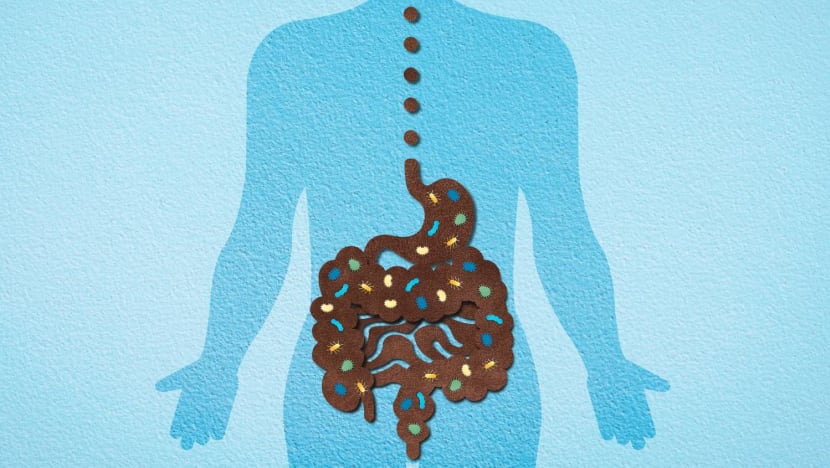Gen Zen: What does taking a healthy dump have to do with your mental health? A lot more than you think

SINGAPORE — Late last year, I chanced upon a website that made an outlandish promise: Get paid US$500 (S$670) each time you donate your stool.
The website was promoting faecal microbiota transplantation, which is a procedure where faecal matter from a healthy donor is transferred to a gut of a recipient to restore the “balance” of micro-organisms that live in the digestive tract, and this improves their immunity and digestion.
However, there was a catch — it is estimated that only 0.1 per cent of the human population is considered healthy enough to qualify as high-quality stool donors.
As expected, there were some physical factors: The donor had to be young (preferably under 30), athletic, had a certain stool type and had minimal antibiotic use, since these would affect the micro-organisms in the gut.
Then, to my surprise, there were psychological requirements as well: A successful donor had to be typically happy and relatively stress-free, or in other words, was in the pink of mental health.
It got me wondering: What does mental health have to do with gut health, and can eating food beneficial to our gut also help our mood as well?
HOW STRESS, ANXIETY AFFECT GUT HEALTH
I put some questions to Dr Ganesh Ramalingam, who is medical director and specialist in general surgery at G&L Surgical Clinic.
He said that psychological factors such as stress, anxiety and depression can indeed influence gut health, through the release of stress hormones such as cortisol and adrenaline.
“These stress hormones can affect how our gut works by changing how quickly food is digested, weakening the intestinal walls and disturbing the balance of helpful bacteria inside the gut,” Dr Ganesh said. He specialises in upper gastrointestinal surgeries, among other procedures.
This gut-brain link made sense to me — whenever I felt anxious before making a speech in public, or felt nervous about the outcome of a job interview or test result, I would feel my stomach turn and lose all appetite for hours on end.
And likewise, our gut health can also affect our mental health.
“Inside our gut there are organisms called microbiota that help produce chemicals that affect our mood like serotonin and dopamine,” Dr Ganesh said.
“When these microbes are out of balance due to factors like diet or medication, it can contribute to mood disorders like anxiety and depression.”
Indeed, a study in 2019 with a sample size of more than 1,000 participants found that two “beneficial bacteria” for the gut — coprococcus and dialister — were less common in people with depression. Such bacteria can be cultivated by consuming fruit, vegetables, whole grains and fermented foods.
Another study conducted in Spain in 2009 showed that people who ate the traditional Mediterranean diet — which consists of whole grains, fruit, vegetables, fish, beans and nuts — were about half as likely to receive a diagnosis of depression within a span of four years.
FIRST STEP TO MANAGING GUT HEALTH: OUR DIET
For those looking to improve their diet and live a healthier life, it may be heartening to know that it can improve their mental health, too.
“What we eat can have an impact on both our gut and mental health,” Dr Ganesh said.
“A diet packed with fibre, fruit, vegetables and probiotics supports gut health, which in turn can positively influence mental well-being.”
The reverse is also true.
“But if we're loading up on processed foods and unhealthy fats, it can throw gut bacteria out of balance, making us more prone to mental health issues,” Dr Ganesh added.
This can also turn into a vicious circle if left unchecked: The stress and anxiety triggered by a bad diet can lead to more gastrointestinal issues, which can lead to poorer mental health.
HOW TO MANAGE BOTH MENTAL AND GUT HEALTH
When it comes to improving mental health, there is recognition that sports and exercise play a big role. Perhaps it is time other factors such as gut health are taken more seriously as well, Dr Ganesh said.
He believes that the link between gut health and mental health means that a “multidisciplinary approach” is needed.
“In my view, mental health professionals can include gut health assessments in their treatments, considering factors like diet, stress and gastrointestinal symptoms,” he said.
They might then suggest dietary changes alongside other stress management treatment and even refer their patients to gastroenterologists if their gut problems are suspected to be affecting their mental health.
Similarly, gastroenterologists could ask about patients' mental health during consultations and work with mental health professionals as needed.
“They can also educate patients on the gut-brain connection and suggest lifestyle and diet changes,” Dr Ganesh said.











